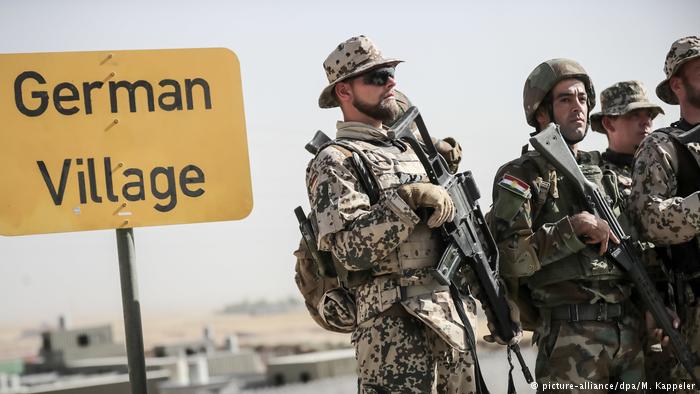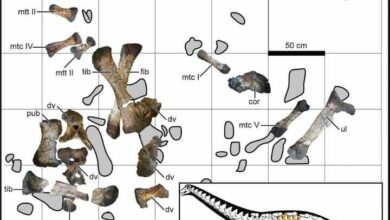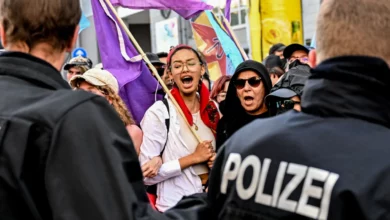
German Defense Minister Ursula von der Leyen on Saturday said the role of Germany’s armed forces in Iraq must evolve to meet the “needs of Iraq,” which she said is in a “period of transition” after the military defeat of the “Islamic State” (IS) militant group.
Currently, Germany has approximately 150 troops deployed in northern Iraq to help train Kurdish forces in the fight against IS. The German mission in Iraqi Kurdistan formally ends in March and the draft plan for a new coalition government calls for allowing the deployment to expire and creating a new mandate to support the stabilization of Iraq.
“Everyone knows that IS has been beaten, but not completely defeated yet,” von der Leyen said after meeting with Iraqi Prime Minister Haider al-Abadi. She added that Iraqi partners expressed their desire for a “commitment from Germany” for “other forms of engagement,” including training and logistics.
From Berlin to Baghdad
Germany has provided more than €1 billion ($1.22 billion) in humanitarian and development aid to the country since 2014, making Iraq one of the largest recipients of German foreign assistance.
IS fight winds down
In December, the Iraqi government announced the military defeat of IS. At the time, Al-Abadi said, “We have won through our unity and our determination.”
Now, Baghdad is shifting attention to reconstruction and development. During the World Economic Forum in Davos last month, al-Abadi said Iraq needs to raise $100 billion (€81.7 billion) to rebuild the country.
Iraq is hoping to raise the funds partially through private investment during a reconstruction conference scheduled for Monday in Kuwait.
‘Evolving threat’
However, the fight against IS is far from over, according to an expert report produced for the UN Security Council and circulated last week.
Read more: Will the ‘Islamic State’ survive?
IS continues to pose a “significant and evolving threat around the world” despite losing most of its territories in Iraq and Syria. The militant group rose to notoriety in 2014, when it seized large swathes of land in Iraq and Syria, culminating in the occupation of Mosul.




